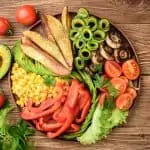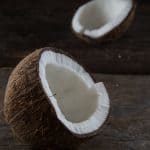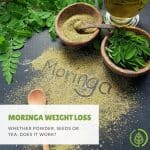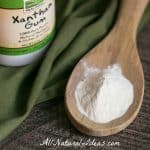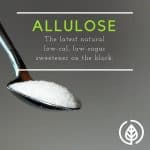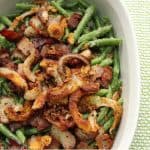Einkorn is a type of wheat flour. It contains gluten. Sound unhealthy so far? Curious why einkorn bread and pasta have become a new health trend? Discover what makes einkorn flour supposedly much healthier than most products with wheat sold in supermarkets.
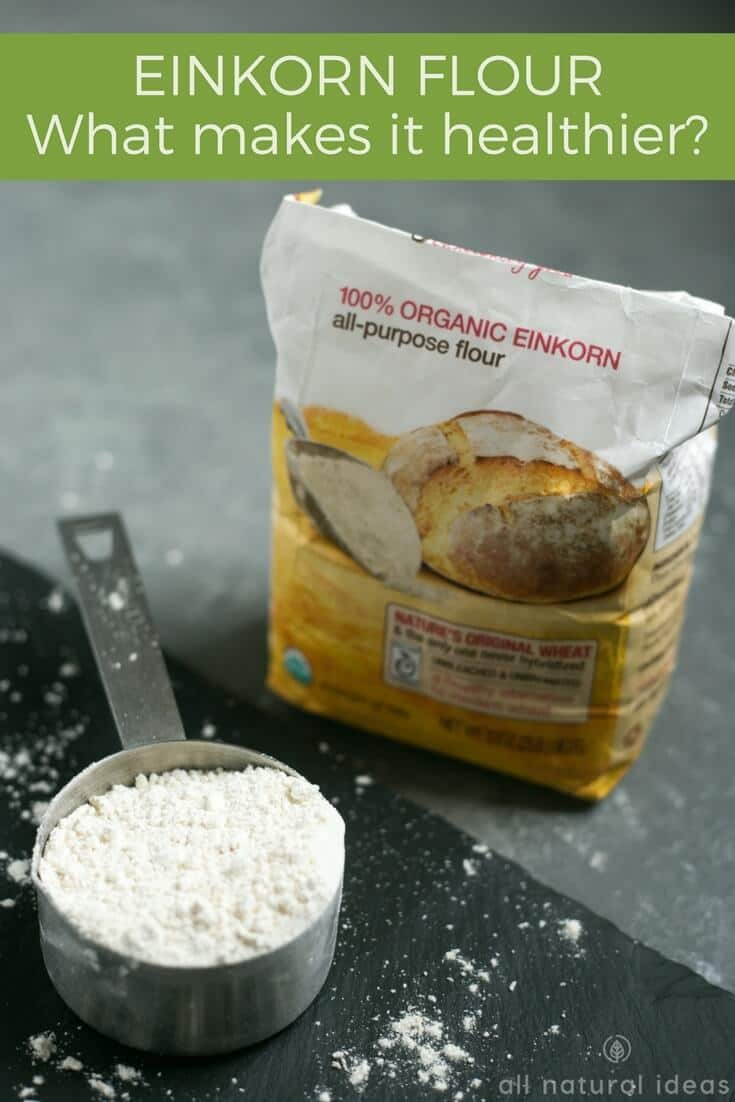
Let’s get something completely unrelated out of the way. If you’re doing a search for “Finkle is Einhorn,” you’ve come to the wrong place. This is an article about nutrition, not the movie, “Ace Ventura: Pet Detective” with Jim Carrey.
Now that that’s out of the way, let’s talk about wheat….
If you want a flat tummy and strong digestive system, avoid anything with wheat flour. That’s advice most nutritionists and health coaches preach. That means no to most breads, pastas, and baked goods. In fact, most products in conventional supermarkets contain wheat flour.
But are health gurus lumping all wheat in the same basket? Just like all meat isn’t of the same quality—bacon vs. grass fed beef, for example—not all wheat is created equal.
Take einkorn flour, for instance.
What is einkorn flour?
You can think of einkorn as “ancient wheat” or “nature’s original wheat.”
The main reason why it’s healthy: it’s not nearly as processed as modern wheat. And because of this, some people who are sensitive to gluten may be able to enjoy bread and pasta. This despite the fact that einkorn does contain gluten.
However, for those with Celiac Disease, even einkorn is best avoided.
Einkorn is also known as Triticum monococcum (einkorn’s scientific name), einkorn and farro piccolo Italian. According to archaeological evidence, people have been using einkorn to make bread for at least 14,000 years. [SOURCE]
In fact, it the ancient grain may be at least twice as old as that. This Science Daily article suggests hunter-gatherers began collecting wheat 30,000 years ago. If that’s the case, perhaps einkorn is Paleo-friendly. The Paleo diet is grain-free.
People who follow a Paleo diet believe grains were not part of the hunter-gatherer diet. Perhaps the Science Daily article is proof that this is not entirely true.
Maybe pre-agricultural people were even making einkorn pancakes!
What are the benefits of einkorn flour?
The benefits of einkorn flour include:
- Doesn’t cause gluten sensitivity in some people
- Contains less starch than modern, conventional wheat
- Richer in protein than regular wheat flour
- Higher in nutrients and antioxidants
- Lower insulin response than regular wheat
Modern wheat is drastically different from einkorn. The processing of modern wheat has transformed gluten into an allergy-inducing nightmare nutrient.
Einkorn (loosely interpreted from German as ‘single grain’ ) is better for you because the gluten is different from the gluten molecules in conventional wheat flour.
The gluten molecules in einkorn flour are smaller than their modern counterparts. If you’re one of the estimated 20 million Americans sensitive to gluten, that’s great news. These smaller molecules just may allow you to fall back in love with bread and pasta again.
One theory why so many people have trouble with gluten: The hybridized, large gluten molecules from modern wheat are difficult to digest. Undigested food particles can lead to serious conditions such as autoimmune disease.
But just because the gluten protein molecules are smaller doesn’t mean einkorn is low in protein. On the contrary, it’s got about a third more protein than modern wheat. Also, einkorn contains 15% less starch. And, it’s also richer in B vitamins, zinc and iron and antioxidants.
A study in Nutrients says einkorn wheat contains several bioactive compounds. These living, beneficial compounds include:
- polyunsaturated fatty acids
- fructans (also to blame for gluten sensitivity)
- tocols (fat-soluble antioxidants),
- carotenoids (another type of antioxidant)
- alkylresorcinols (a type of fat that doubles as an antioxidant)
- phytosterols (the plant form of cholesterol)
The Nutrients research also says after eating einkorn bread, there’s a lower rise in insulin (compared to modern wheat).
And that’s not all. Other benefits mentioned in the study include better gut bacteria, higher metabolism and improved absorption. “These features make einkorn flour a good candidate to provide healthier foods,” the researchers conclude.
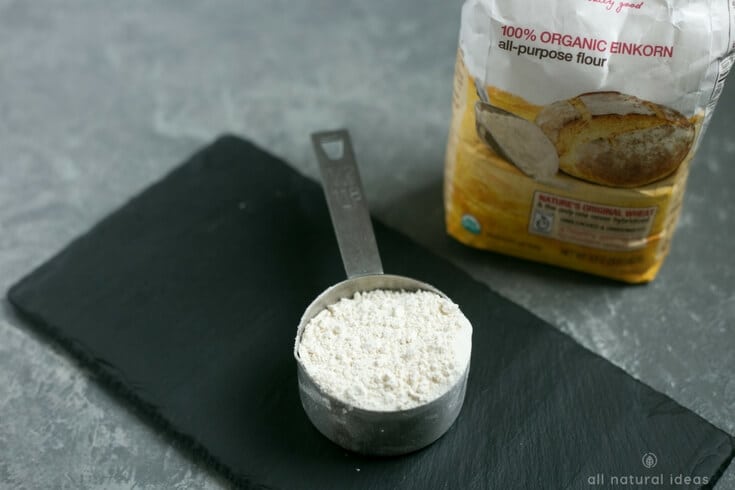
Is Einkorn Flour Paleo-Friendly?
It depends. People who eat strict Paleo probably pass on einkorn. But that’s assuming that you should avoid all grains on a Paleo diet.
This assumption stems from the belief that early humans did not eat grains. Instead, ancient humans were hunter gatherers.
However, there is some overlap of einkorn cultivation and the Paleolithic era. The Paleo era ended roughly 12,000 years ago. Einkorn cereal is believed to have been harvested at least 17,000 years ago.
In light of this, if einkorn is good enough for latter Paleo man, it’s probably not going to give you a wheat belly.
Does einkorn flour taste different?
Taste, of course, is subjective. But many people who consume einkorn prefer its taste over modern wheat flour.
Einkorn flour has a fuller, grainier taste. Many conventional wheat products lack taste altogether. Or, if there is a taste associated with modern flour, it’s artificially sweet.
What makes einkorn taste different than modern wheat is the processing.
Modern wheat processing involves threshing. Threshing is when the the edible part of wheat separates from the indigestible chaff. Next, the grain undergoes winnowing. Winnowing separates the chaff from the wheat grain.
Einkorn differs from modern wheat because, as mentioned, its grains are smaller. Also, the grains are sealed with very tough husks. Because of this, einkorn harvests are much smaller than modern wheat varieties. So, even though einkorn flour is healthier for you than wheat (including whole wheat), it’s not in most foods because the grain yield is much smaller.
Where is Einkorn grown?
Traditional einkorn grows in the mountains of Northwest Africa, Europe, including Italy, and Russia. In general, it grows in climates harsher than where mainstream wheat thrives. Einkorn also grows in the western U.S. and Canada.
Another reason Einkorn flour is a drop in the bucket in comparison to modern wheat is that it’s difficult to farm. As climate change produces hotter and drier summers in some regions, einkorn grains shrink. And they’re smaller to begin with than modern wheat. In light of this, already small yields (compared to conventional wheat) get smaller.
Nonetheless, the remarkable thing about einkorn is it’s still grown very similarly to how it was cultivated thousands of years ago.
Jovial einkorn flour
Jovial is one of the leading brands of einkorn products. This includes einkorn flour. The brand is the creation of a husband and wife, Rodolfo and Carla. The couple’s daughter was previously suffering from several maladies.
Upon discovering their daughter’s illnesses were due to modern wheat sensitivity, Carla and Rodolfo sought to discover healing foods and offer them to the public. Einkorn is one of those foods.
Carla and Rodolfo are part of a team in Italy that basically resurrected the popularity of ancient seeds.
Jovial organic sprouted wheat flour is grown on small family-run farms in Italy. The amino acids, and other nutrients increase from the sprouting process. And great news if you are watching your starchy carb intake: the amount of starch decreases as a result of sprouting einkorn. Not only that, a nutrient that interferes with your digestion—phytic acid—also decreases.
There are 4 grams of protein in Jovial organic einkorn flour. The protein is easy to digest, also because of the sprouting process.
In addition to flour, Jovial sells several styles of pasta such as spaghetti and rigatoni made with einkorn.
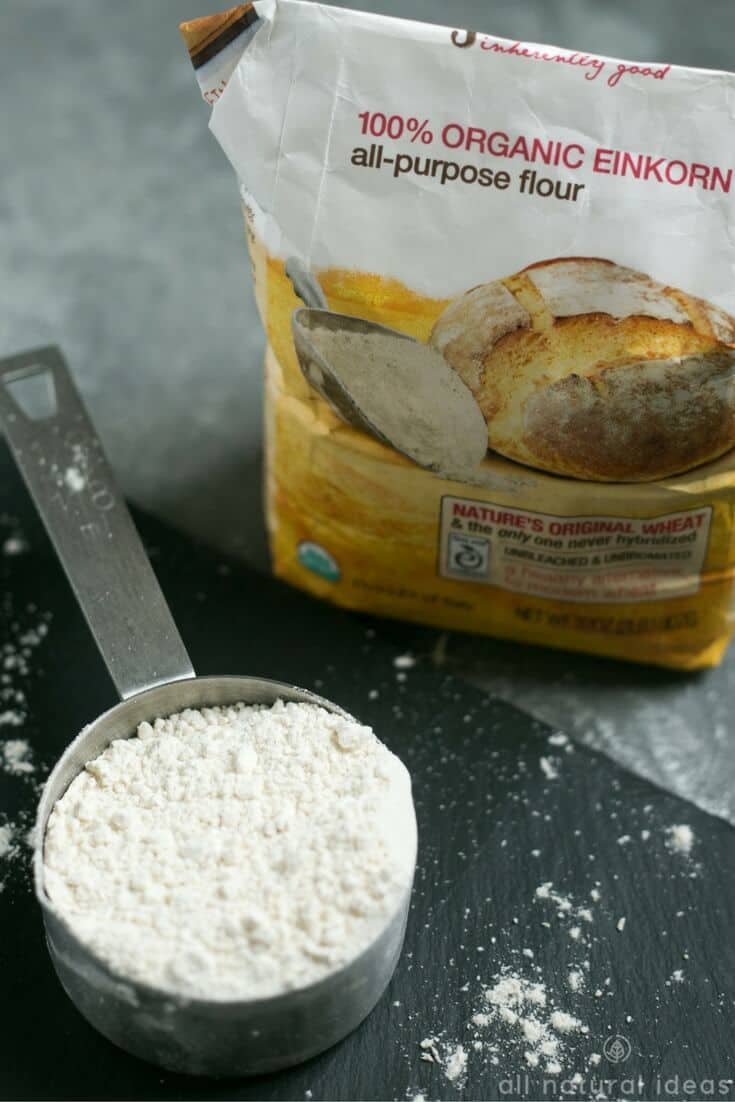
Einkorn wheat berries
The berries that come from einkorn are the whole grain. Or, in other words, the seed. Farmers mill the seed into flour. Einkorn wheat berries contain two nutritious parts that are missing in modern wheat: the germ and bran.
If you love cooking and miss eating grains, consider using einkorn wheat berries in your recipes. According to Jovial’s website, you can prepare wheat berries like brown rice or risotto. You can even use them in soups.
Want to make your own flour from the wheat berries? All you need is a counter-top mill.
Einkorn wheat berries require no other prep if you’re going to use them for baking. That’s because einkorn wheat grows in a hull. This hull is does not separate from the kernel when the farmers harvest it.
Einkorn berries are the result of a delicate, expensive dehulling process. That’s why it’s difficult to grow your own einkorn. But you can easily buy einkorn berries online. And if you are an avid DIY sprouter, you can try your hand at sprouting your own einkorn berries.
Einkorn seed
According to Einkorn.com, there’s no einkorn seed suppliers in the United States. Einkorn not too long ago was virtually on the brink of extinction. Not too many people were interested in its cultivation. And though, today, it’s experiencing a rediscovery of sorts, it’s supply is still miniscule.
If you are interested in growing your own einkorn, there are companies in North America that sell it. One such company–Prairie Garden Seeds—is located in Saskatchewan, Canada. Good luck growing your own einkorn. You’ll need it. And a very expensive dehulling machine.
Einkorn Flour: Conclusion
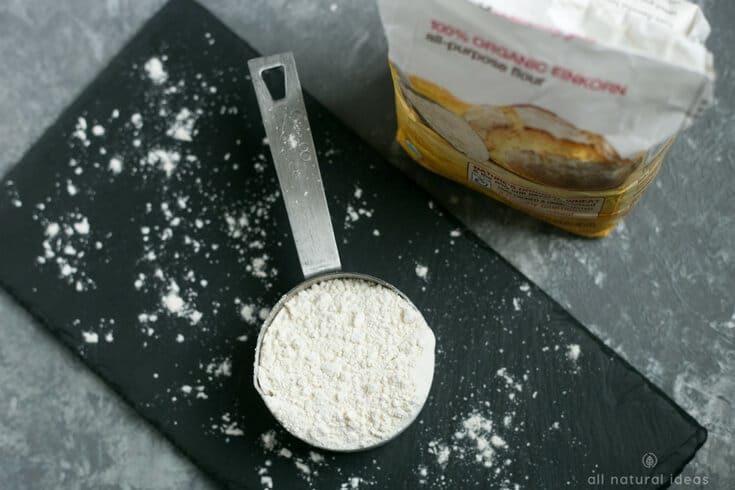
If you’re cooking low carb recipes, as long as you can limit your other carbs, there’s no reason why you should not use Einkorn flour. Unless you need to eat a Ketogenic diet for medical purposes or you have Celiac Disease, this is the healthy wheat flour you’ve been waiting for!
